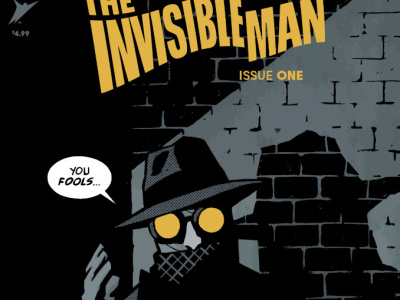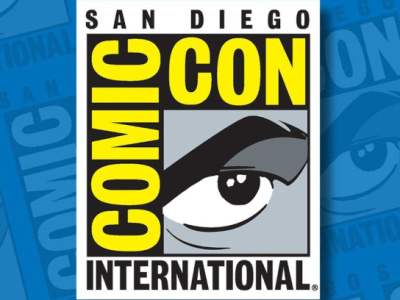 As geekdom and geek-friendly spaces become more mainstream and diverse, incidents of harassment and marginalization continue. What’s the best way to foster respectful fan environments?
As geekdom and geek-friendly spaces become more mainstream and diverse, incidents of harassment and marginalization continue. What’s the best way to foster respectful fan environments?If you read the blogs and industry news, you’ll see that the rising popularity of geek culture gatherings and conventions is being accompanied by increasingly high-profile missteps regarding sexism and harassment. PAXPrime, the huge consumer gaming show that has made conspicuous efforts to make women and minority groups welcome, took a huge step backward this past September when Penny Arcade co-founder Mike Krahulik reignited an old controversy involving profiting from a tasteless rape joke. A month later reports surfaced at New York Comic Con that camera crews were following women and harassing them with sexist and racist remarks. This week, the Detroit Fanfest very publicly issued a zero-tolerance anti-harassment policy designed to head off similar incidents.
Meanwhile alternative conventions are sprouting up, designed specifically as safe spaces for groups that are harassed and marginalized in larger venues. GaymerX, launched via Kickstarter last year, is a game expo specifically oriented toward LGBTQ audiences. WisCon, now in its 38th year, bills itself as the "first and foremost feminist science fiction in the world" with special emphasis on people of color. The organizers of ValorCon, a new event scheduled for the summer of 2014 in Chicago, are striving to create a female-friendly gamer’s show.
Is nerd culture fragmenting along dominant-minority lines? Will underrepresented voices retreat to their own spaces or continue to push the dialogue forward in fandom’s most populous arenas?
Geek Girls Unite!
One of the most successful "specialty shows" is GeekGirlCon, which just concluded its third annual show this past weekend in Seattle. Though it is oriented toward women as a deliberate strategy, GeekGirlCon in practice represents the very opposite of "separatist" fandom and aims to be an inclusive space where geek dads can bring their daughters and geek moms can bring their sons without the implicit biases that color interactions at other kinds of cons.
Speakers and guests included producer Jane Espenson, comics writers Kelly Sue De Connick and Jan Van Meter, "nerdlesque" impresario Jo Jo Stiletto, educator Christina Blanch (organizer of the hugely successful "Gender in Comics" MOOC), actress Denise Crosby, and many others from all corners of geek culture. Programming featured topics in pop culture, fandom, science and technology, art and entertainment that are rarely discussed in dominant-culture venues.
Cosplayers were out in force, many with humorous gender-bending takes on the classics. A room full of exhibitors sold the usual assortment of games, fashion accessories, art, comics and books. There was an artists’ alley, a gaming pavilion, a concert, and even a quiet room for introverts needing a break. Organizers report a complete two-day sellout (about 4000 attendees altogether by unoffical estimate), and anecdotally, I can confirm that a great time was had by all.
Lead or leave?
The rise in popular alternative spaces like GeekGirlCcon poses a familiar dilemma for fans who do not feel safe, respected and included in the sprawling megacons that have come to dominate the landscape: Integrate or separate? Why bother with Comic-Con, PAX and the rest when alternatives exist that cater more specifically to one’s own tastes and cultural norms?
That question was the subject of a panel discussion I participated in at GeekGirlCcon on Saturday entitled "Changing Culture in Mainstream and Alternative Spaces." The panel was moderated by GeekGirlCon programming director Jen Stuller and featured journalist Tempest Bradford, gaming expert Shoshana Kessock, GaymerX organizer Benjamin Williams, and Jo Jo Stilletto. I was the token straight white male.
Not a river in Egypt.
This is the kind of subject that tends to activate a lot of insecurities. There’s a fair percentage of the culture – geek and otherwise – that is simply in denial about the extent to which women, people of color and LGBTQ communities are marginalized in both fandom and the more nerd-oriented pop culture industries. The mythologies depicted in videogames, fantasy entertainment and superhero comics, defenders explain, simply reflects the male, white European legacy of those stories. We’d love to hire more female creators, but the people we pick for each individual project just happen to be mostly men. And besides, most of the audience is guys anyway. "What do you expect us to do? Don’t be so damn sensitive!"
One positive effect of the mass commercialization of geek culture is that those excuses are eroding. Conventions and fandom in general are visibly more diverse and gender balanced today than they were even 10 years ago. Readership of comics and especially manga is trending female, and the success of mass-market movies and TV shows based on geek culture content is nearly universal. To the extent that various aspects of comics, gaming and entertainment remain segregated, it seems to reflect more a desire on the part of companies to maintain simple market segmentation among brands ("girls like princesses, boys like superheroes") than the reality of the 21st century audience. Hopefully as we start getting hard data to replace old assumptions, facts will change minds.
The pros of cons.
Conventions, as public spaces, are on the front lines of the shift. As geek culture becomes a desirable market demographic, organizers of giant shows find themselves not simply trying to package programs and events for fans, but also package fans for big consumer sponsors. Brands like Intel, Chevy and Verizon are not vested in old industry assumptions and are accountable to a much larger and more diverse market. They want to be part of the Con scene, but can’t afford to be associated with the sexual pathologies of male nerd culture when they erupt into embarrassing PR problems.
It is interesting that the response of New York Comic Con to reports of harassment was nearly instant: the perpetrators were located, their badges deactivated, and apologies were issued. Naturally, that speaks to the respect the organizers have for attendees, and their desire to ensure a great Con experience for everyone. It also shows how exposure to broader commercial and social forces can influence behavior. PAX organizers, independent and mostly catering to subculture-oriented sponsors in the male dominated videogame industry, could cross their arms and downplay criticism until pressure became too public to ignore.
Let a thousand flowers bloom and the bad ones will eventually wilt.
For what it’s worth, no one on the panel advocated a complete withdrawal from mainstream spaces. One byproduct of a growing market is that there is plenty of room for all kinds of events; attending GirlGeekCon does not preclude going to Emerald City if there are things there to interest you. It’s also clear that things won’t change at bigger events until people demand it, and you don’t have leverage if you don’t show up.
-- Rob Salkowitz (@robsalk) is author of Comic-Con and the Business of Pop Culture and is working on a new project on the future of marketing and retail in the digital age.
The opinions expressed in this column are solely those of the writer, and do not necessarily reflect the views of the editorial staff of ICv2.com.







